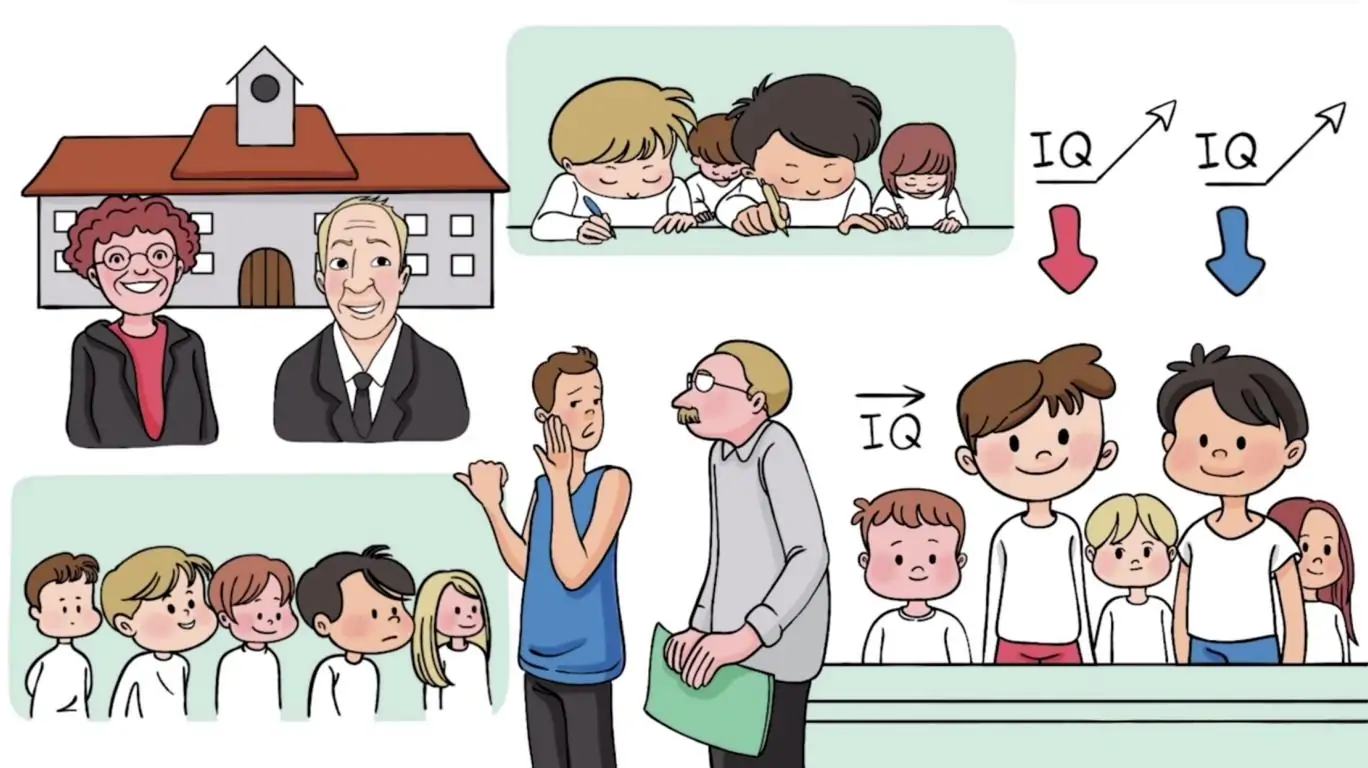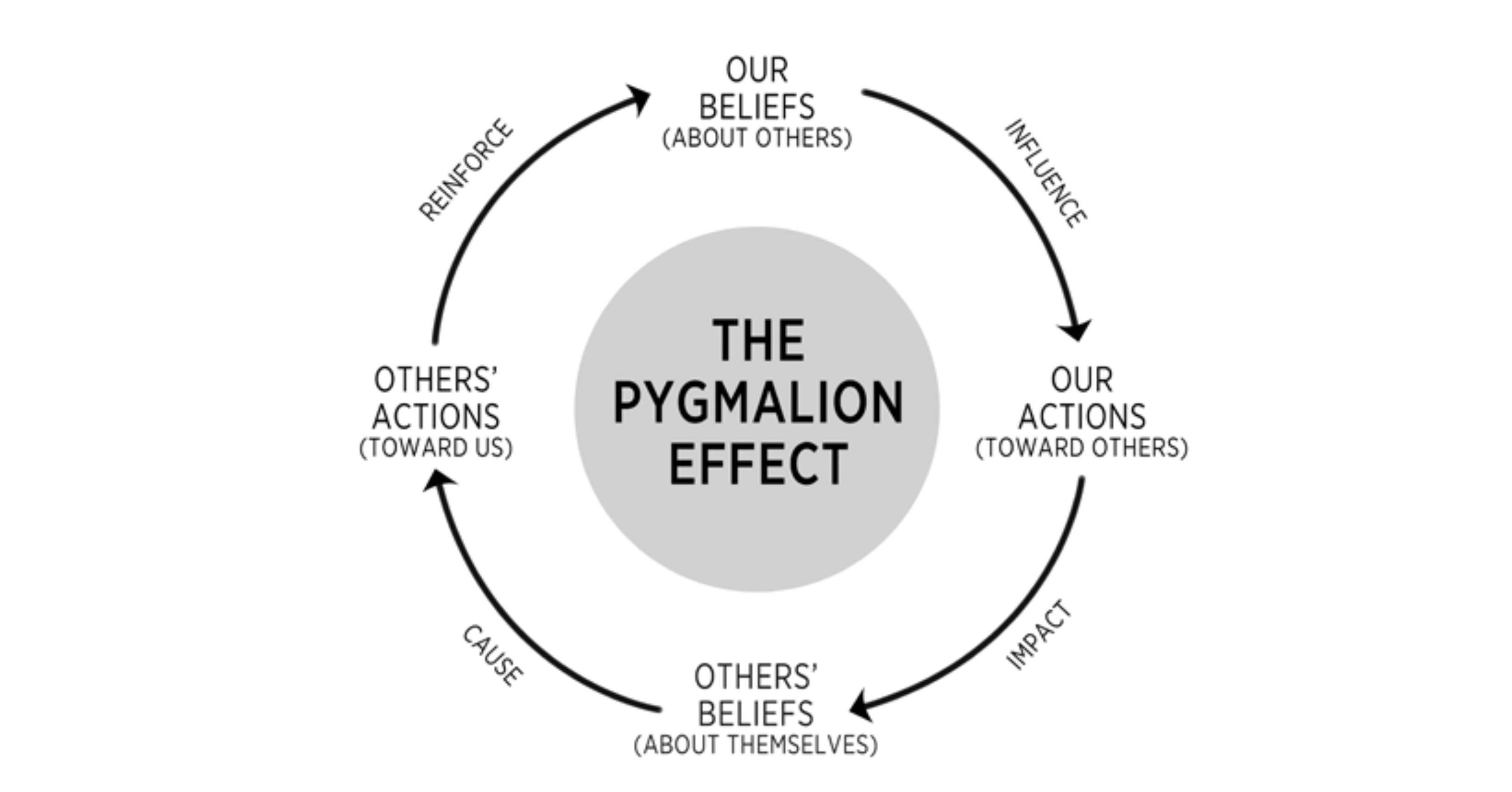The Pygmalion Effect is a phenomenon whereby high expectations lead to outstanding performance. It can be understand how our beliefs about another person’s abilities influence our actions toward the other. The effort has an impact on others’ beliefs about themselves. The confidence in themselves causes other actions toward us, reinforcing our beliefs about that person.
It is a positive self-fulfilling foretelling in which the targeted individual of projections internalizes and conforms to the optimistic labels they receive. This implies that optimistic expectations on a leader’s part could boost teams’ performance.

History of the Pygmalion effect
The one who discovered the Pygmalion effect was Robert Rosenthal in his pioneering study in 1964. Rosenthal and his colleague, Lenore Jacobson, use the Greek myth of Pygmalion in ‘Metamorphoses’ by Ovid to explain the concept in their book, ‘Pygmalion in the Classroom.’
The story begins when Pygmalion, a sculptor from Cyprus, falls in love with an ivory statue of a woman made by him. Fascinated by the statue’s beauty, he begged God to give him a wife like the statue he created. Then, God granted Pygmalion’s request, and the statue came to life.

Next, George Bernard Shaw’s play, Pygmalion, also conveys the point. In the play, Liza explains: “the difference between a flower girl and a woman is not in the way she behaves, but in the way she is treated.” She insists, “I will always be a flower girl to Professor Higgins because he treats me as a flower girl, always will; but I know I will be a woman to you because you think of me as a woman, always will.”

How does it work?
The performance of the Pygmalion effect is similar to a self-fulfilling prophecy. It can be understood through the four stages of the cycle pattern:
1. What people think of us shapes how they treat us
2. Their treatment of us affects how we think about ourselves
3. Their beliefs then impact the way we interact with others
4. Our interactions with others shape their thinking towards us, back to basics.
The main idea of the Pygmalion effect is how other people’s expectations of us shape our behaviour significantly.
In conclusion, high expectations make our performance excellent, while low expectations make our performance terrible.
Sources: Sprouts @YouTube, simplysociology.com



